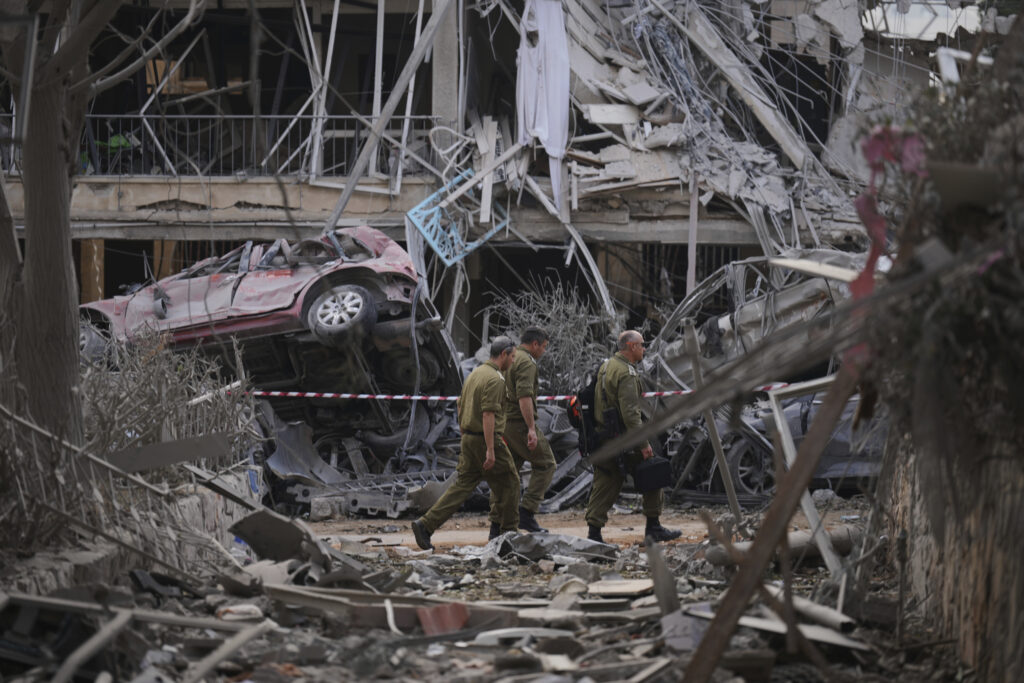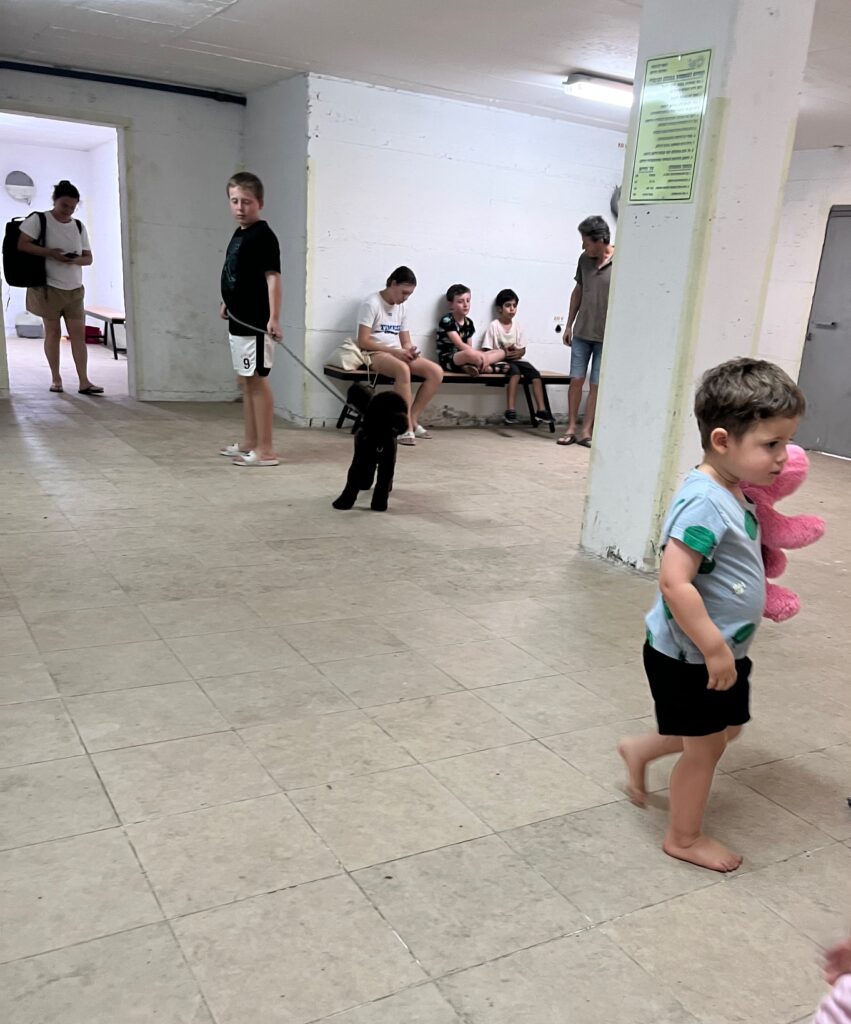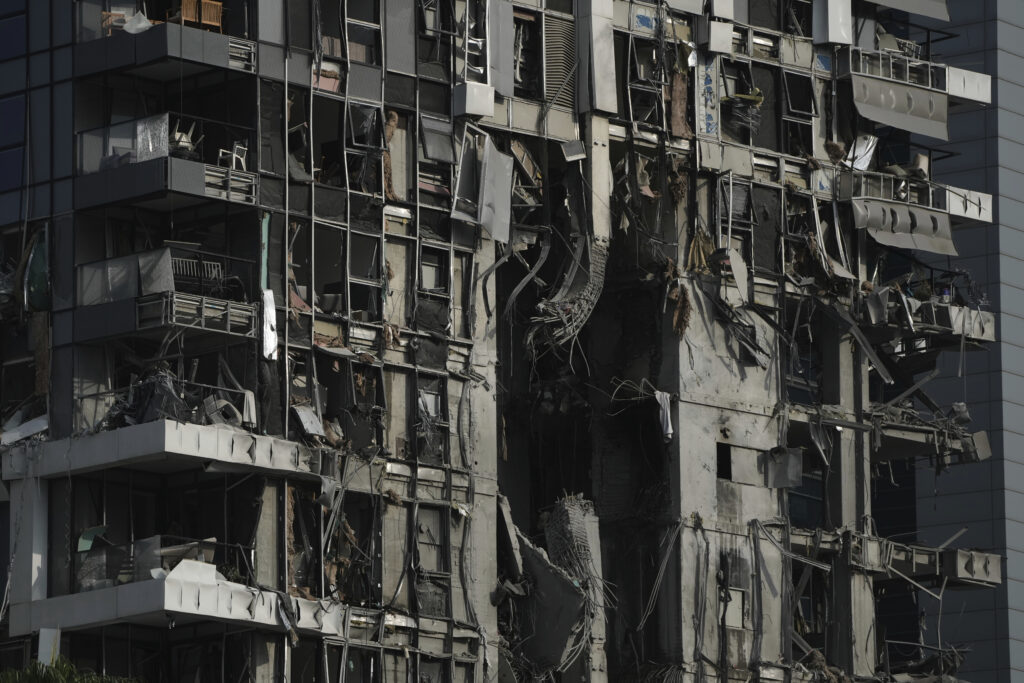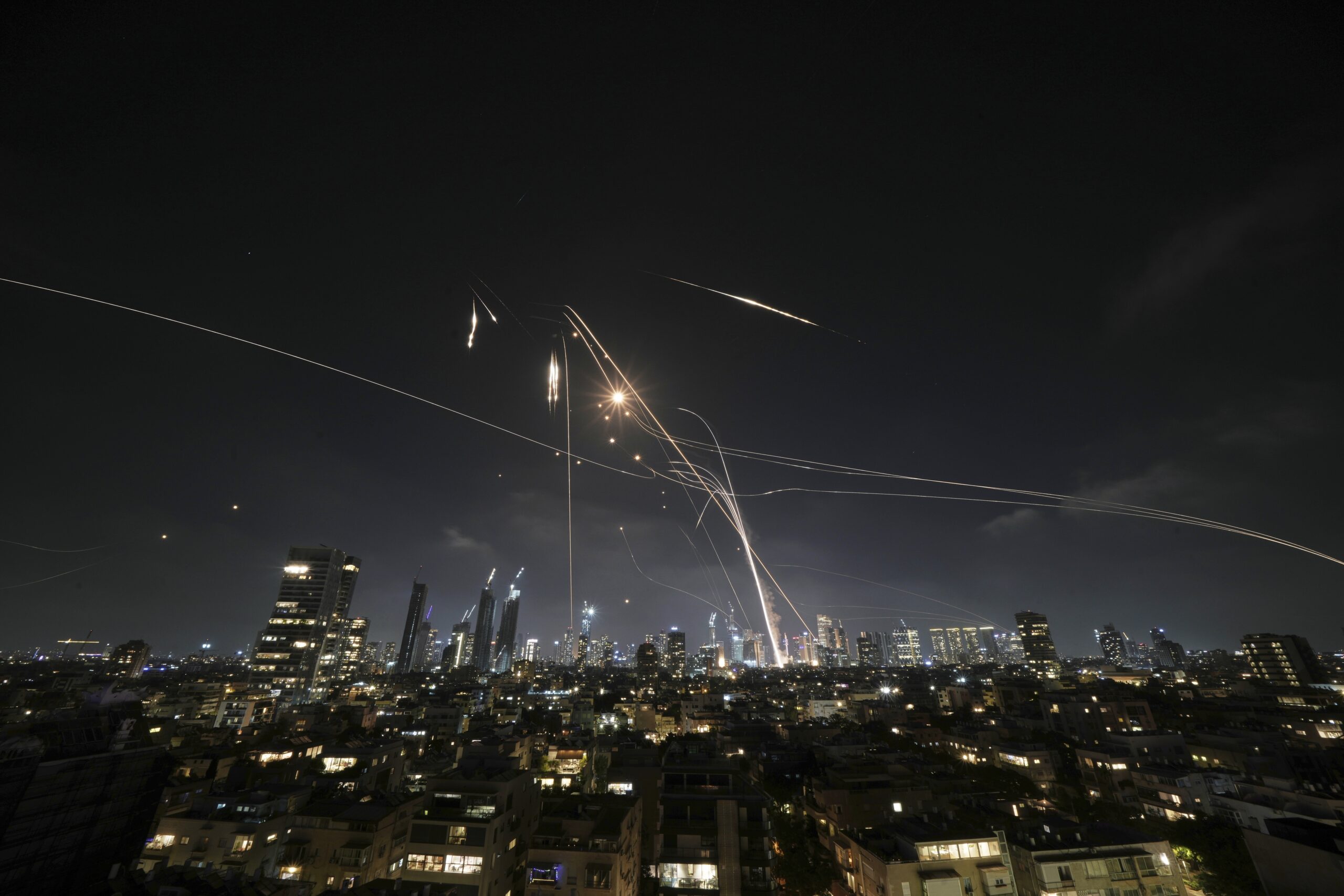TEL AVIV — You worry that you won’t wake up when the siren wails, but it seems piercing enough almost to rouse the countless dead buried beneath the Mount of Olives awaiting the Messiah’s alarm clock. Soon enough, you hear it in your head even when it isn’t ringing.
Which is useful because rockets don’t differentiate between sleeping and waking. The alerts warning of what Virginia Woolf once called the “death rattle overhead” are a language all their own, and they are the soundtrack of the front lines of this new-old war between Israel and Iran, whose theater is also the heartland of the Jewish state.
Israel, according to the Associated Press and other reports, is warning today of more attacks on Iran after Iran’s deadly retaliatory strikes on Israel overnight and into the morning. The AP reports that three people were killed and dozens wounded in Israel, after a series of blistering Israeli attacks on Iran’s nuclear program and its armed forces the previous day.
The Israel Defense Forces on Saturday assessed that “Tehran is no longer immune: The Iranian capital is exposed to Israeli strikes.” Israel’s assault on Friday, the AP reports, used warplanes, as well as drones and commandos smuggled into the country in advance, to assault key facilities and kill top generals and scientists. The AP quotes Iran’s ambassador to the United Nations as saying 78 people were killed and more than 320 wounded in the attacks.

Israel said the barrage was necessary before Iran got any closer to building an atomic weapon. The head of the IDF, Eyal Zamir, characterized the moment as a “point of no return.” The hostilities also threw talks between America and Iran over an atomic accord into disarray days before the two sides were set to meet Sunday at Muscat. Iran now calls those talks “meaningless.”
The first salvo, a haymaker, was landed by Israel in the small hours of Friday morning, Israel time, when it decapitated much of the upper echelon of Iran’s Revolutionary Guard, army, and nuclear brain trust. Also hit were some of the Islamic Republic’s nuclear sites and its military infrastructure. The stories of how all this was achieved, if they are ever told, will match those of King David and the Maccabees.
No rockets sailed into Israel then — the barrage would come later — but still an alarm went off, like the bell at the beginning of a prize fight. It was a warning that something momentous — and dangerous — was underway. Israel’s astonishing blow to Iran doubled as a promissory note for a retaliation. The debt would come due in a matter of hours.
This is what it feels like to be in Tel Aviv as war takes hold. Say you’re in bed. The first thing to remember is to charge your phone, which hopefully — essentially — is equipped with the “Home Front” app. That — again, hopefully — will give you a warning before the real warning. That is usually the point at which sleep becomes impossible.

It would be best if you already plotted the path to the nearest bomb shelter, because the grace period is only a minute and a half. In my case the destination is a subterranean room across the street. I’m on the third floor, so steps and staircases must be taken into account as well. By the third alarm, I start thinking in seconds rather than minutes. Like a runner, I became proud of my best time.
Once you exit the building, it is hard to avoid looking at the sky, but it is best to keep your head down. Your peripheral vision will catch men, women, and children all running, some with long loping strides and others with short choppy ones. Down they go to a sparse bunker. There are bathrooms but no other amenities. The year could be 1945, and the location could be Berlin or whereabouts.
A grandmother sits on a bench with a wry smile. I ask her how many wars she’s seen. She says 10. Toddlers turn fitfully on thin blankets, fresh inductees into life in the Jewish state. A soldier rolls a thin cigarette, waiting for the all-clear so he can take a drag. Friday night is a night that seems to last forever. I sprint to the bunker at 8 p.m., 1 a.m., 5 a.m. One ballistic impact, near Israel’s Defense Ministry, is so direct I can hear the boom overhead.
Israelis are used to such ordeals. They are the shadows that put the sunlight of Tel Aviv into such sharp relief. In the shelter a bottle of wine is passed around to make the Friday night blessing over the wine. One girl hopes that Caitlyn Jenner was comfortable in her shelter, not far away. A group of young and beautiful Israelis, tattooed and casual, hum a prayer from the Passover Seder with these lyrics: “In every generation they rise up to destroy us. But the Holy One, Blessed be He, delivers us from their hands.”

During the parenthesis between Israel’s attack on Iran and Tehran’s response — a postcard-perfect Friday — I walk the streets to suss out the mood. A young Hasidic man, Mordechai, tells me he’d tell me how I was feeling if I wrapped tefillin. An easy enough bargain. He shared that he doesn’t claim to have his own thoughts, only those of his teacher, the Lubavitcher Rebbe, who taught that Israel is the most secure place in the world, because God watches it with the fullness of his Divine attention.
With the light grooves from the leather straps still marked on my forearm, I stop to a girl selling candy — gummy bears, sour straws, and the like. Her hair is a cloud of platinum, and she is draped in a Pride flag that doubles as her cape. Her name is Bianca, and I asked her if she was disappointed that festivities for Pride were cancelled on account of Iran’s theocrats.
There are posters all over the city for parties that will never take place. Bianca says she is disappointed, but also proud of the army and the people who make this oasis of tolerance — a just cause — possible.
(Except for the headline, this story has not been edited by PostX News and is published from a syndicated feed.)

